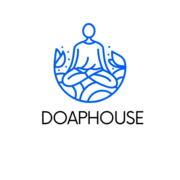In our fast-paced world, finding moments of peace can feel impossible. That’s where a 30-day mindfulness challenge comes in. This journey isn’t just about sitting in silence; it’s about cultivating awareness and learning to live in the present moment. I’ve found that dedicating just a few minutes each day can transform my mindset and overall well-being.
By committing to this challenge, I’ve discovered practical techniques to reduce stress and enhance my focus. Whether you’re a beginner or have dabbled in mindfulness before, this challenge offers a structured path to deeper self-discovery. Join me as we explore the transformative power of mindfulness and unlock the benefits it brings to our daily lives.
Key Takeaways
- Commit to Daily Practices: The 30-day mindfulness challenge involves engaging in daily exercises like guided meditations and mindful walking to enhance present-moment awareness.
- Utilize Reflection: Journaling your thoughts and feelings each day reinforces self-discovery and tracks your progress throughout the challenge.
- Seek Community Support: Joining groups or online communities provides encouragement and accountability, enhancing your commitment to mindfulness practices.
- Expect Mental Health Improvements: Regular mindfulness practice can lead to reduced anxiety and depression, promoting emotional resilience and clarity in decision-making.
- Enhance Focus and Productivity: Consistent mindfulness training strengthens attention span and cognitive functions, significantly improving focus and overall productivity.
- Incorporate Mindfulness into Daily Life: Integrate mindfulness into routine activities, such as eating or walking, to cultivate lasting habits and increase awareness throughout the day.
30 Day Mindfulness Challenge
The 30 Day Mindfulness Challenge focuses on daily practices designed to enhance awareness and promote living in the present moment. Each day introduces specific exercises that encourage observation of thoughts, feelings, and sensations without judgment. This structured approach makes it accessible for beginners and beneficial for those with prior mindfulness practice.
Key components of the challenge include:
- Daily Practices: Each day offers a new task or exercise, such as guided meditations, mindful walking, or breath awareness.
- Reflection: Participants engage in reflection through journaling to track thoughts and feelings, reinforcing self-discovery.
- Community Support: Joining a group or online community provides encouragement, sharing experiences strengthens commitment.
- Resource Accessibility: Various apps, websites, and podcasts offer guided sessions to assist in daily practice.
By committing to these daily activities, individuals can expect reduced stress levels, improved focus, and a greater connection to their thoughts and emotions. Enhanced mindfulness can lead to lasting positive effects in daily life, fostering a deeper sense of peace and well-being.
Benefits of Participating in the Challenge
Participating in the 30-day mindfulness challenge presents numerous advantages that enhance overall well-being. By engaging in daily mindfulness activities, I experience significant improvements in various aspects of life.
Improved Mental Health
Improved mental health manifests through reduced anxiety and depression symptoms. Daily mindfulness practices foster emotional resilience, allowing me to manage stress effectively. Meditation and mindful breathing exercises contribute to heightened self-awareness, enabling better emotional regulation. Increased mindfulness leads to greater clarity in thoughts and feelings, which enhances my decision-making abilities. Research shows that regular mindfulness engagement can lower cortisol levels, promoting a sense of calm and stability.
Enhanced Focus and Concentration
Enhanced focus and concentration arise from consistent mindfulness practice. Each day, dedicating time to mindfulness strengthens my attention span. Techniques such as mindful breathing and observation cultivate a non-judgmental awareness of my thoughts, reducing distractions. I find that staying present significantly boosts my productivity levels. Studies indicate that people who practice mindfulness regularly experience improvements in cognitive flexibility and working memory, facilitating better performance in both personal and professional tasks.
How to Get Started with the Challenge
Starting the 30-day mindfulness challenge requires a clear plan. I’ll outline practical steps to help you succeed.
Setting Realistic Goals
Setting realistic goals keeps motivation high. I recommend defining specific, achievable outcomes for each week. For example, aim to practice mindfulness for 5 minutes daily during the first week, then increase to 10 minutes in the second week. Track your progress in a journal, noting any changes in your thoughts and feelings. This approach provides tangible evidence of your growth and reinforces commitment to the challenge.
Creating a Daily Schedule
Creating a daily schedule enhances consistency. I suggest blocking out a specific time each day dedicated to mindfulness. Mornings work well for some, while others prefer evenings. Choose a time when you can be undisturbed—whether it’s during breakfast or just before bed. Incorporate reminders on your phone or calendar to stay on track. Additionally, consider mixing up activities throughout the week, such as alternating between guided meditations and mindful walks, to keep the experience fresh and engaging.
Tips for Success in the Challenge
Sticking to a 30-day mindfulness challenge requires commitment and practical strategies. Here are some effective tips to enhance your experience.
Staying Motivated
Staying motivated can be challenging, especially as days progress. Setting small, achievable milestones keeps enthusiasm high. Rewarding myself after reaching these goals reinforces my commitment. Sharing my journey with friends or using social media helps create accountability. Participating in community challenges or groups for shared experiences and encouragement significantly boosts motivation levels. Reminding myself of the benefits, such as reduced stress and increased focus, keeps my intentions clear.
Incorporating Mindfulness into Daily Life
Incorporating mindfulness into daily routines ensures these practices become habits. I integrate mindfulness into activities, such as my morning coffee ritual or daily walks. Engaging in mindful eating by savoring each bite enhances awareness. Utilizing apps with reminders helps maintain focus on my mindfulness goals. Even setting aside a few minutes during my lunch break for deep breathing serves as a quick reset. Finding small moments throughout the day where I can practice awareness creates a seamless blend of mindfulness in my life.
Personal Experiences and Testimonials
Participants often share transformative experiences from the 30-day mindfulness challenge. I find that many individuals report significant changes in their mental clarity and emotional stability after committing to daily practices.
- Sarah, a marketing professional, described how the challenge improved her focus during hectic workdays. She noted that setting aside just 10 minutes daily for mindfulness meditation allowed her to handle stress with greater ease.
- James, a college student, reflected on enhanced self-awareness throughout the challenge. He mentioned that journaling his thoughts and feelings daily provided insights into his responses, leading him to better manage anxiety before exams.
- Emma, a busy mom, experienced positive shifts in her interactions with her family. She stated that mindfulness encouraged her to practice patience and presence, resulting in more meaningful connections with her children.
These testimonials highlight the real-world impacts of the challenge. Research supports these experiences, with findings indicating that mindfulness practice can lead to lower stress levels and improved emotional regulation.
- Michael, a retired teacher, explained that mindfulness helped him reconnect with hobbies he had set aside for years. Engaging in activities like painting and gardening became more fulfilling as he approached them with heightened awareness.
- Linda, who works in healthcare, shared her experience of reduced burnout. Daily mindfulness practices, such as mindful breathing during breaks, fostered a sense of calmness that improved her interactions with patients.
Community involvement through group sessions also enhances individual progress. Many participants, like Tom and Lucy, expressed that sharing their experiences in group settings added accountability and motivation, further enriching their mindfulness journey.
Ultimately, these personal stories showcase the tangible benefits derived from a consistent mindfulness practice, reinforcing how this 30-day challenge can cultivate a profound sense of peace and awareness in everyday life.
Taking on the 30-day mindfulness challenge can truly transform your daily life. By dedicating just a few minutes each day to mindfulness practices, I’ve experienced profound shifts in my mindset and well-being. The journey isn’t just about meditation; it’s about cultivating a deeper awareness and connection to the present moment.
As I embraced daily exercises and reflected on my experiences, I noticed a significant reduction in stress and an increase in focus. This challenge not only fosters personal growth but also enhances emotional resilience. I encourage you to embark on this journey and discover the incredible benefits that mindfulness can bring to your life.

